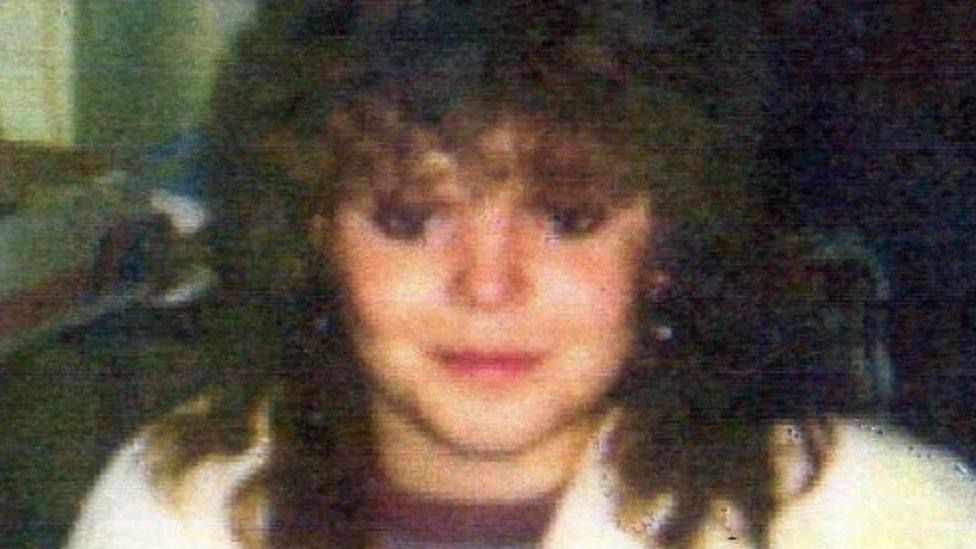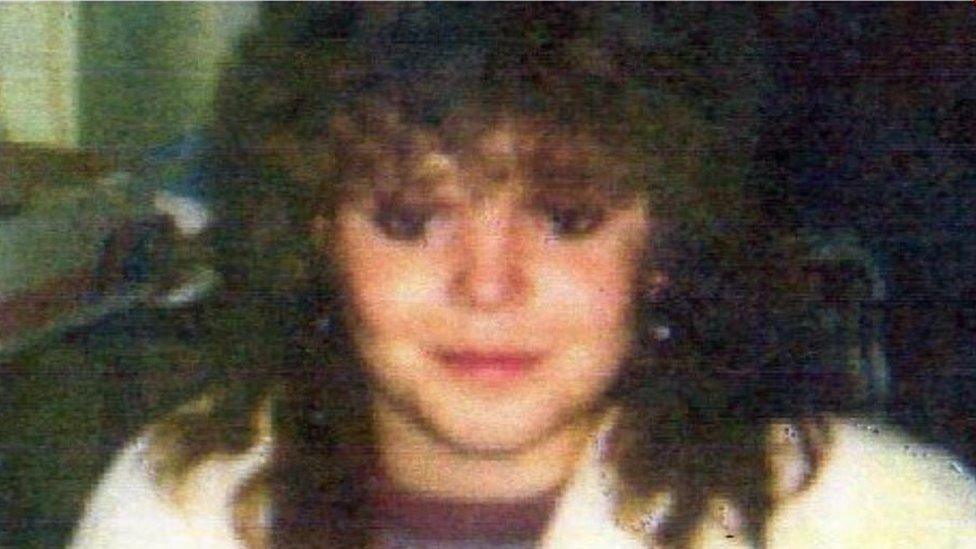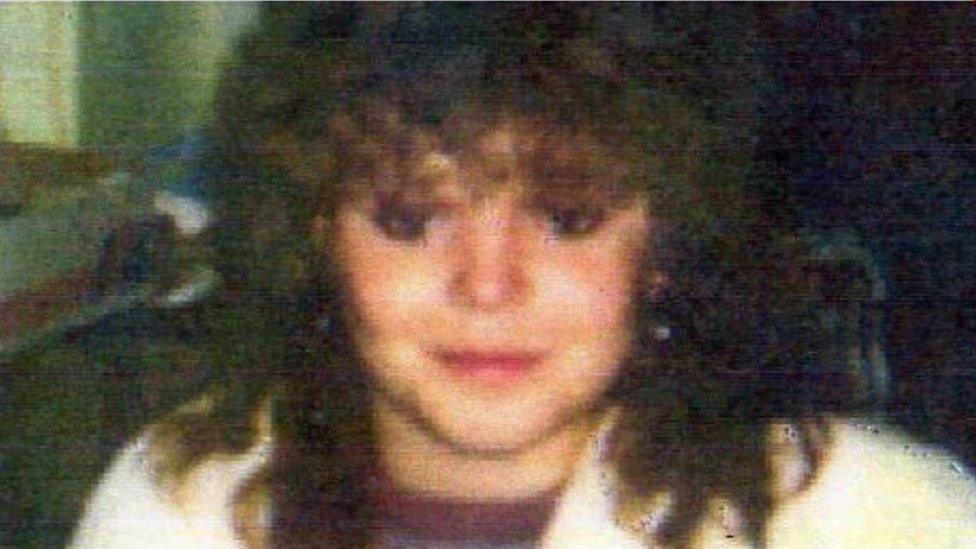Lynette White: Murder probe officers 'changed statements'
- Published

Officers involved in the murder investigation of a Cardiff prostitute "changed statements to iron-out inconvenient discrepancies", the High Court has heard.
South Wales Police said there were "reasonable grounds" to prosecute eight former officers involved in Lynette White's murder investigation in 1988.
The former officers have brought civil action against the force after they were cleared of corruption allegations.
The corruption trial collapsed in 2011.
Former officers Graham Mouncher, Thomas Page, Richard Powell, John Seaford, Michael Daniels, Peter Greenwood, Paul Jennings and Paul Stephen are suing the force for misfeasance in public office, false imprisonment and trespass.
'A distraction'
The senior barrister representing the force, Jeremy Johnson QC, told the Cardiff court on Thursday that the former officers had re-written evidence and carried out "oppressive interviews".
He said there were questions over the objectivity and the integrity of the original investigation.
The court heard it was "well established by any legal threshold" that Jeffrey Gafoor committed the murder alone.
Mr Johnson said the fact the claimants have tried to say otherwise "was a distraction in this case".
On Monday, the court heard that Gafoor may not have acted alone when he killed Ms White in a flat in Cardiff's docklands on Valentine's Day.
Tony Parris, Stephen Miller and Yusef Abdullahi - who became known as the Cardiff Three - were wrongly jailed for life in 1990 for the murder and freed in 1992 after their convictions were quashed.
Evidence reviewed
Mr Johnson QC told the court that the following the conviction of Gafoor for Ms White's murder, a new eight and a half year investigation into the original inquiry was held.
He said that only a relatively small number of officers concerned with that original inquiry were arrested and that had happened after a long review of the evidence.
The investigation didn't start with a completely clean sheet of paper, they reviewed what had gone before.
Mr Johnson said that for South Wales Police "it would have been convenient to just investigate civilians, but the investigation had to be conducted without fear or favour and that is what happened".
He said that inquiries had been made "without an inappropriate mindset or prejudice", "with an open mind, not a closed mind"
The court was told that civilians who admitted lying in the original investigation and trial had "no motive to falsely admit perjury - it must have been due to a conspiracy"
The hearing continues.
- Published13 October 2015

- Published12 October 2015
